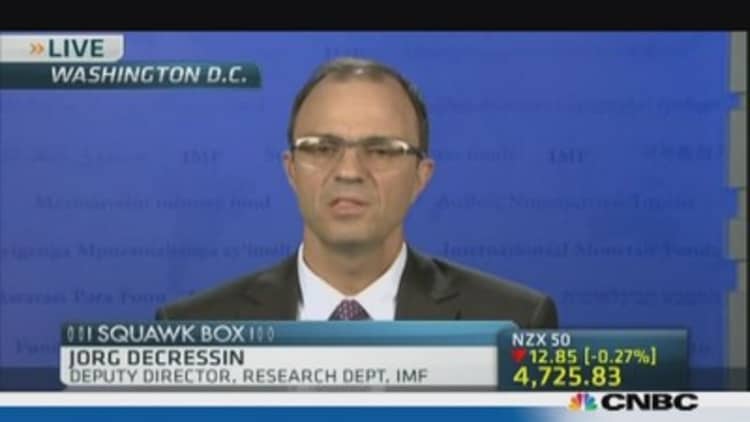While concerns over a withdrawal of the Federal Reserve's stimulus program may have been behind the recent bout of volatility in emerging markets, bigger headwinds may lie ahead as their labor costs become less competitive.
Emerging markets' value creation – measured as return on equity less cost of equity – is now inferior to their developed peers, mostly as wage growth caused earnings margins to contract, Credit Suisse said in a note.
"Emerging market wage growth has been consistently outpacing (albeit from a low base) overall inflation and is now jeopardizing core-emerging market labor competitiveness and boosting unit labor costs," it said. "The emerging market outsourcing phenomenon has further aggravated margin compression as labor-intensive services have shifted out of developed markets and not all the wage cost increases have been passed back."
(Read More: For Japan, China is losing its competitive edge)
A survey from human-resources and outsourcing services provider Aon Hewitt, released this month, also indicated average wages in emerging markets are rising faster than their developed peers. It showed average expected 2013 wage increases in Africa, Asia, Latin America and the Middle East running at 5.8 percent to 7.2 percent, while North America and Europe are expecting 2.9 percent to 3.7 percent increases.
In developed markets, the share of gross domestic product (GDP) devoted to wages remains on a downtrend amid a slow economic recovery, but emerging-market labor's strong pricing power has stabilized and even increased the GDP wage share by around 200 basis points in around three years, Credit Suisse said.
(Read More: Study Finds China Manufacturing Costs Rising to US Level)

It's partly why the bank doesn't expect the underperformance of emerging market equities to reverse anytime soon, despite significant valuation discounts compared with their developed-market peers.
"We are not yet satisfied that it is sufficient to tempt global equity investors back into emerging markets given that the consensus 12-month forward earnings growth outlook is the same magnitude for both regions at 11 percent," it said.
Others have also noted emerging market competitiveness may be slipping.
(Read More: Some Manufacturers Say 'Adios' to China)
"Rebounding demand in the U.S., Japan, and Europe has so far failed to translate into convincingly stronger shipments from Asia," noted Frederic Neumann, co-head of Asian economics research at HSBC, in a note.
"This, presumably, reflects soaring costs locally [in Asia] and stagnating wages and prices elsewhere. This means that, at the margin, an increase in demand (such as there is) is more often met by local production rather than imports," he said.
(Read More: IMF cuts growth forecast for emerging world)
"The trend is evident among a number of industries, with even some textile and electronics production being relocated back into the United States for example."
Data from China, generally considered the world's factory floor, have also indicated the competitive edge is slipping. In an April report, consulting firm AlixPartners estimated the cost of outsourcing manufacturing to China will be equal to the cost of manufacturing in the U.S. by 2015.
Hourly wages have been going up steadily due to China raising minimum wages, while competition for labor has forced manufacturers to pay more to attract skilled workers and keep them.
—CNBC.Com's Leslie Shaffer; Follow her onTwitter @LeslieShaffer1

